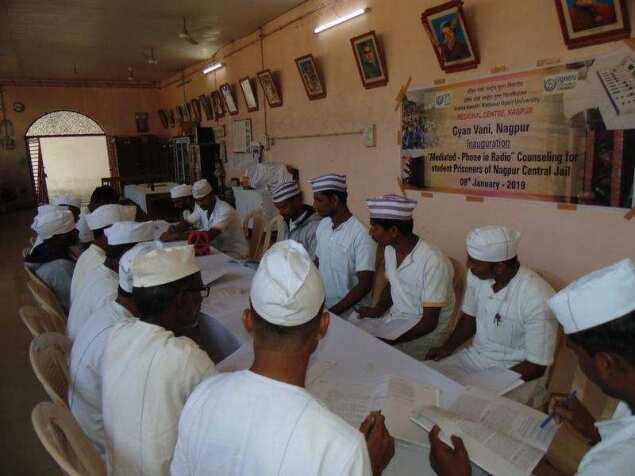
NAGPUR: World body Unesco celebrates October 13 as the International Day for Education in Prisons and experts say this is one of the best reformative measures for inmates. Right from terror convict Yakub Memon to gangster-turned-politician Arun Gawli, many inmates in prisons of the region had enrolled themselves in various educational courses.
In Nagpur and Amravati Central Prisons, many convicts are availing of the free education programme being undertaken by Indira Gandhi National Open University (Ignou). P Sivaswaroop, regional director of Ignou Nagpur, said, “Starting with just 12 students in the first batch of 2011, today our cumulative student prisoners enrolment is 1,125. They pursue various courses right from BA, MA, MBA to certificate courses.” He added many took their education seriously. “Around 25 prisoners received their undergraduate and postgraduate degrees,” said Sivaswaroop.

Former Nagpur police commissioner PKB Chakraborty said educating prisoners was indeed the right thing to do. “I have been a firm believer of theory ‘education always works’. There is no denying the fact that education changes the thinking process of a person. The results may not always be visible immediately, but in the long run it works,” said Chakraborty.
Unseco’s official site explains why education in prisons is a crucial aspect of reforms. It says Unesco recognizes education as a human right to which all people are entitled. “Not only does prison education reduce recidivism and the financial and social costs of re-offending, it gives prisoners an opportunity to overcome disadvantage, to build new and different lives and to contribute fully to society,” the portal says.
It further goes on to mention the background of the initiative. “International Day of Education in Prison was created to mark the 25th anniversary of the Council of Europe’s adoption of a set of recommendations outlining the needs and responsibilities concerning the education of imprisoned persons in Europe on October 13, 1989. The day is an important opportunity to highlight the benefits of prison education, consider the barriers and reflect on how it can best be promoted,” it adds.
In Nagpur and Amravati Central Prisons, many convicts are availing of the free education programme being undertaken by Indira Gandhi National Open University (Ignou). P Sivaswaroop, regional director of Ignou Nagpur, said, “Starting with just 12 students in the first batch of 2011, today our cumulative student prisoners enrolment is 1,125. They pursue various courses right from BA, MA, MBA to certificate courses.” He added many took their education seriously. “Around 25 prisoners received their undergraduate and postgraduate degrees,” said Sivaswaroop.

Former Nagpur police commissioner PKB Chakraborty said educating prisoners was indeed the right thing to do. “I have been a firm believer of theory ‘education always works’. There is no denying the fact that education changes the thinking process of a person. The results may not always be visible immediately, but in the long run it works,” said Chakraborty.
Unseco’s official site explains why education in prisons is a crucial aspect of reforms. It says Unesco recognizes education as a human right to which all people are entitled. “Not only does prison education reduce recidivism and the financial and social costs of re-offending, it gives prisoners an opportunity to overcome disadvantage, to build new and different lives and to contribute fully to society,” the portal says.
It further goes on to mention the background of the initiative. “International Day of Education in Prison was created to mark the 25th anniversary of the Council of Europe’s adoption of a set of recommendations outlining the needs and responsibilities concerning the education of imprisoned persons in Europe on October 13, 1989. The day is an important opportunity to highlight the benefits of prison education, consider the barriers and reflect on how it can best be promoted,” it adds.

Coronavirus outbreak
Trending Topics
LATEST VIDEOS
City
 Shocking: Delhi fake cab app racket busted: 1,000 duped of Rs 250 crore
Shocking: Delhi fake cab app racket busted: 1,000 duped of Rs 250 crore  'Terror factory' red-flagged: 3 Jammu and Kashmir teachers held under PSA, school faces terror scan
'Terror factory' red-flagged: 3 Jammu and Kashmir teachers held under PSA, school faces terror scan  Mumbai power outage: Fire in generator set at Apex Hospital; 1 dead
Mumbai power outage: Fire in generator set at Apex Hospital; 1 dead  Bengaluru riots: Crime Branch files chargesheet, names ex-Congress mayor Sampath Raj as accused
Bengaluru riots: Crime Branch files chargesheet, names ex-Congress mayor Sampath Raj as accused
More from TOI
Navbharat Times
Featured Today in Travel
Quick Links
Get the app



